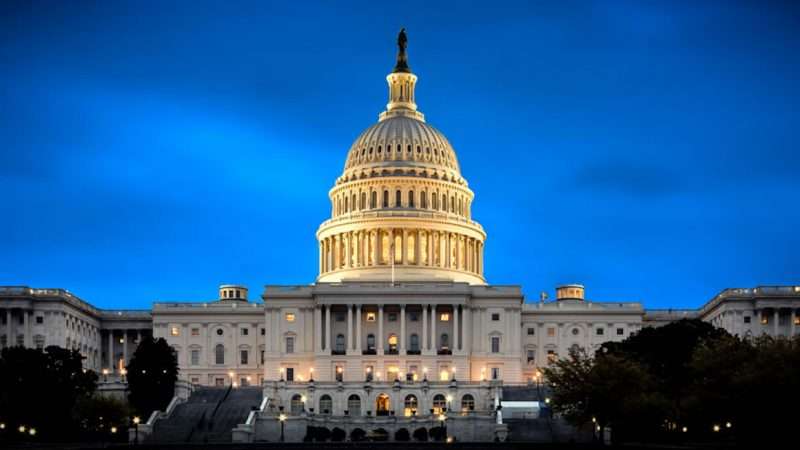Yesterday’s Eighth Circuit decision in Campbell v. Reich, written by Judge Morris Arnold and joined by Judge Steven Colloton, considered “whether [Missouri state representative Cheri Toalson] Reisch acted under color of state law when she blocked [Mike] Campbell on Twitter.” If she was acting under color of state law, viewpoint-based blocking would likely have violated the First Amendment; but if she was acting wearing her private citizen hat, she’d be free to engage in such blocking:
Campbell maintains that [Reisch acted under color of state law] because she blocked him for criticizing her fitness for political office even though she had created a virtual forum for the public to discuss “the conduct of her office.” Reisch says she didn’t act under color of state law because she runs this Twitter account in a private capacity, namely, as a campaigner for political office….
Campbell encourages us to follow the path taken by Knight First Amendment Inst. v. Trump (2d Cir. 2019) and Davison v. Randall (4th Cir. 2019) and conclude that Reisch acted under color of state law. In Davison, the chair of a local governmental board, Phyllis Randall, blocked a constituent from a Facebook page. The page, titled “Chair Phyllis J. Randall,” was created the day before Randall was sworn in as chair, and she designated the page “governmental official.” Randall also had a personal Facebook page and a page devoted to her campaign. As the Fourth Circuit pointed out, Randall used the page “as a tool of governance” by updating constituents about the county’s activities and emergency responses, as well as by soliciting public input on policy issues. And it bore certain “trappings” of her office, including a page title that noted Randall’s official title, lists of official contact information, links to the official county website, posts about official activities, and even posts expressly directed to all of Randall’s constituents.
In Trump, the Second Circuit considered President Trump’s Twitter account, which was unabashedly used for official purposes. President Trump and members of his administration described the account as official and used it to announce, describe, and defend policies; to promote his legislative agenda; to announce official decisions; and to engage with foreign leaders, among other things. His press secretary described the tweets as “official statements” of the president, members of his administration helped him operate the account, and even the National Archives deemed the tweets “official” for purposes of archiving them. As that court explained, “the evidence of the official nature of the Account is overwhelming.” The court reached this conclusion even though President Trump had created the account long before he became president. The court was careful to note, however, that “not every social media account operated by a public official is a government account.”
We hold that Reisch’s account is the kind of unofficial account that the Trump court envisioned. First of all, no one seriously disputes that her account at least began life as a private account because Reisch was not a public official when she created it. Indeed, it seems safe to say that someone who isn’t a public official cannot create an official governmental account. But even if Reisch had been a public official at the time, we would still hold that she had not created an official governmental account because she used it overwhelmingly for campaign purposes: She created the account the day she announced her candidacy; she solicited donations to her campaign on the account; and, for over a year, she sought to convince her audience to support her election bid.
We don’t intimate that the essential character of a Twitter account is fixed forever. But the mere fact of Reisch’s election did not magically alter the account’s character, nor did it evolve into something different. A private account can turn into a governmental one if it becomes an organ of official business, but that is not what happened here. The overall theme of Reisch’s tweets—that’s she’s the right person for the job—largely remained the same after her electoral victory. Her messages frequently harkened back to promises she made on the campaign trail, and she touted her success in fulfilling those promises and in her performance as a legislator, often with the same or similar hashtags as the ones she used while a candidate. So it seems to us that Reisch used the account in the main to promote herself and position herself for more electoral success down the road—a conclusion supported by the campaign-related tweet that led to this litigation.
We acknowledge that she occasionally used the account to provide updates on where certain bills were in the legislative process or the effect certain recently enacted laws had had on the state. But tweets like these are fully consistent with Reisch using the account to tout her record because they show voters that she was actively advancing her legislative agenda and fulfilling campaign promises. They also revealed where she stood on relevant political issues. In sum, her post-election use of the account is too similar to her pre-election use to suggest that it had morphed into something altogether different.
Reisch’s account is fundamentally different from the accounts at issue in Trump and Davison. For one thing, official governmental activity was conducted on those accounts, whether it was President Trump announcing an appointee or conducting foreign affairs, or Chairwoman Randall coordinating her county’s response to a blizzard. Even if Reisch’s official duties as a representative extend beyond voting or participating in committee meetings and include things like communicating with constituents about legislation, her sporadic engagement in these activities does not overshadow what we believe was quite clearly an effort to emphasize her suitability for public office.
The dissent points to a few tweets that Reisch posted after the election to support the view that she changed the way in which she was using her account. These messages are necessarily different from previous ones because they report on events that occurred in the state legislature. But it is not obvious that their purpose was different. They were consistent with a desire to create a favorable impression of Reisch in the minds of her constituents.
Reisch’s new tweets, moreover, also provided information on her local political party’s annual chili supper and Lincoln Day banquet, featured pictures of her posing with young boys who had brought her chocolate, and reported that her niece would be voting for a particular political candidate. The main point is that occasional stray messages that might conceivably be characterized as conducting the public’s business are not enough to convert Reisch’s account into something different from its original incarnation.
The district court also noted that Reisch’s Twitter page had what the Davison and Trump courts called “trappings” of an official account. For example, the court pointed out that Reisch’s twitter handle, @CheriMO44, refers to the district she represents and her role as state representative. The court also drew attention to photos at the top of the Twitter page showing Reisch on the House floor and to Reisch’s discussion of political issues.
But even if these can be trappings of an official account, they can quite obviously be trappings of a personal account as well. The Trump and Davison courts were not concerned with distinguishing an official page from a campaign page as we are, and so they do not offer much guidance for deciding this case.
The Twitter page of a political candidate does not convert itself into an official page just because the candidate chooses a handle that reflects the office she is pursuing (which Reisch did here before she became an elected official) or because she posts a photo of herself working at the job she was elected to perform and hopes to be elected to perform again. And a campaign page certainly doesn’t become something else simply because it discusses political topics. One can expect discussions of political topics on such a page, and Reisch in fact discussed them on the account before she became a government official. All these “trappings” are just too equivocal to be helpful here.
In short, we think Reisch’s Twitter account is more akin to a campaign newsletter than to anything else, and so it’s Reisch’s prerogative to select her audience and present her page as she sees fit…. Reisch’s own First Amendment right to craft her campaign materials necessarily trumps Campbell’s desire to convey a message on her Twitter page that she does not wish to convey, even if that message does not compete for room as it would, say, in a campaign newsletter….
Judge Jane Kelly dissented:
Reisch’s election to public office may not have “magically alter[ed]” the character of her Twitter account, as the court notes, but it did change how she used the account and for what purpose. Before Reisch was sworn in, her tweets used her campaign hashtag (“#TeamCheri”), invited people to join her campaign team, solicited campaign donations, and publicized endorsements from various groups and individuals. By contrast, between January 2017 and February 2019 (when she apparently deleted her Twitter account), Reisch did not tweet a single request for campaign donations, or make any reference to “#TeamCheri.” Instead, the majority of Reisch’s tweets and retweets after January 2017 reported on new laws (“MO citizens will now have a choice to get Real ID compliant license”); provided information about the Missouri legislature’s work (“A big thanks to House Communications for doing this great story on this piece of legislation that was passed”); and informed the public of Reisch’s own official activities (“I spoke [on the Missouri House floor] about my 34 years experience with prevailing wage. Repeal it. Save taxpayers $.”). Through her Twitter account, Reisch also interacted with Missouri residents, including a fourth grade teacher who thanked Reisch for speaking to students about “a [s]tate [r]epresentative’s job.”
Moreover, in addition to using her Twitter account as a “tool of governance,” Reisch “clothed [it] in the trappings of her public office.” She set her location to “District 44, Missouri, USA,” described herself in her bio as “MO State Rep 44th District,” displayed a profile photo taken in the Missouri House chamber, and used a large photo of her swearing-in ceremony as the banner at the top of her Twitter feed. In short, Reisch’s persistent invocation of her position as an elected official overwhelmed any implicit references one might perceive to her campaign or future political ambitions.
The court characterizes Reisch’s tweets as merely “show[ing] voters that she was … fulfilling campaign promises.” And it is true that public officials acting purely in pursuit of personal interests do not do so “under color of state law.” This does not mean, however, that an official whose challenged conduct is closely related to her official responsibilities cannot act “under color of state law” simply because her actions simultaneously further personal goals or motives. Indeed, it seems that the statements of lawmakers carrying out their official duty to communicate information to constituents will very often harken back to some campaign promise or another, so this factor does not merit the outsized importance the court places on it today….

from Latest – Reason.com https://ift.tt/3qUJulC
via IFTTT


